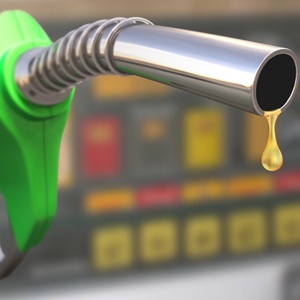
This week’s general election is supposed to be about the economy, small businesses and jobs. By far, these are the issues about which many South Africans are gravely concerned and it is not hard to see why.
The economy has been tanking for several years now and it is bleeding jobs as a result. Unemployment, especially among the youth, is so high that in many democracies it would be regarded as a crisis that could easily fell the government. The cost of living is steadily on the increase with no visible respite on the horizon.
Read: Eskom simply too big to fail
Political parties have cleverly avoided having to explain the promises they are making to the electorate. Save for a few town hall debates among grassroot and regional leaders, and pockets of brilliant journalism here and there, this campaign season has essentially been without substance.
Almost all political parties are promising to create jobs. Even at this late hour in the election campaigns, not many voters have knowledge of how the various parties differ on their jobs plans and how they will achieve their objectives.
Since most of the campaigning is done on a door-to-door basis, there is no telling what promises the politicians make to the voters, away from the glare of the media.
Many economists and experts agree that the most viable way in which the country can add more jobs, is through a strong and developing small, medium and micro enterprise (SMME) sector. The reality on the ground is that many SMMEs are struggling with the country’s economy. Hence more and more people who should be in active employment, have already given up on finding work.
Political parties, and the ANC in particular, have missed an opportunity to thoroughly engage with the issue of growing the economy and creating jobs. Many SMME owners and entrepreneurs accuse the ANC government of being the biggest destroyer of small businesses. The government is said to be doing this mainly through ill-advised regulation. Of all the SMMEs, black-owned ones suffer the most for historical reasons. A good example of bad regulation that impedes transformation and the growth of entrepreneurship and SMMEs is found in the fuel retail industry.
It is one of the sectors that should be regarded as strategic for the project of socioeconomic transformation. It is an industry that is expected to continue to grow as South Africa remains a long way off from electric cars and reliable public transportation.
With the US having a climate change denier in the White House, internal combustion engines appear set to be around for the foreseeable future. Our local power utility is struggling to produce sustainable energy from renewables and coal. Eskom is itself the biggest consumer of diesel in the country and it is therefore not about to take consumers off petrol- and diesel-powered cars any time soon.
In pursuit of the transformation of the economy and changing the patterns of ownership, the government should be regulating the fuel retail industry in favour of SMMEs and young entrepreneurs, especially the previously disadvantaged. Instead, the sector remains hostile to black participants.
The fuel industry is regulated in such a way that the biggest beneficiaries are the oil and refinery companies. Fuel retailers, which are the biggest employers, draw the short straw. The bulk of the profits go to the oil companies, which do not carry as much of the risk of doing business when compared with retailers, which are mainly SMMEs.
Retailers, who run the forecourts from which we buy our petrol and diesel, carry more risks for little profit. They handle the cash from sales, which make them vulnerable to armed robberies. This means extra costs for the management of cash and related insurance costs.
The government’s own regulatory framework is not consistent with the ANC’s promise of radical socioeconomic transformation. The fuel retail industry should be absorbing some of the black, unemployed graduates. However, the reality is that entrepreneurs in the sector become glorified managers of outlets for very little reward.
To run a profitable fuel retail business, an entrepreneur must own the land where the filling station is built and also the equipment that is used to conduct business. Due to historical realities, most of the relevant land is in the hands of oil companies.
The government’s land reform programme has battled to get off the ground since the advent of democracy 25 years ago. The slow pace of land reform is therefore hampering the meaningful participation of black people in the economy.
Profit margins are so thin for fuel retailers that, to be successful, entrepreneurs must run several outlets. Those who run only one forecourt need to pump a lot of fuel to stay afloat. With oil prices on the increase amid geopolitical concerns in which South Africa is not a factor, consumers will be under pressure and ultimately they will spend less on fuel.
This eventually leads to smaller operators struggling to stay afloat and eventually going under. Oil companies then hand over the failed businesses to bigger players, thereby closing the space for emerging traders and further entrenching the advantage of the well-heeled few. At any rate, oil companies have the last say on who can own and run a filling station.
The fuel retail industry is not the only one whose transformation is slowed down by poor government regulation. The election season was supposed to be the perfect opportunity for citizens, and entrepreneurs in particular, to systematically discuss the issues that impede SMME development and job creation.
Politicians have avoided discussing issues and instead they chose the easy option, which is to hand over branded T-shirts and other campaign paraphernalia to citizens away from the probing ears of the media and political commentators.
Mgitywa is a public relations strategist and political commentator




 Publications
Publications
 Partners
Partners








